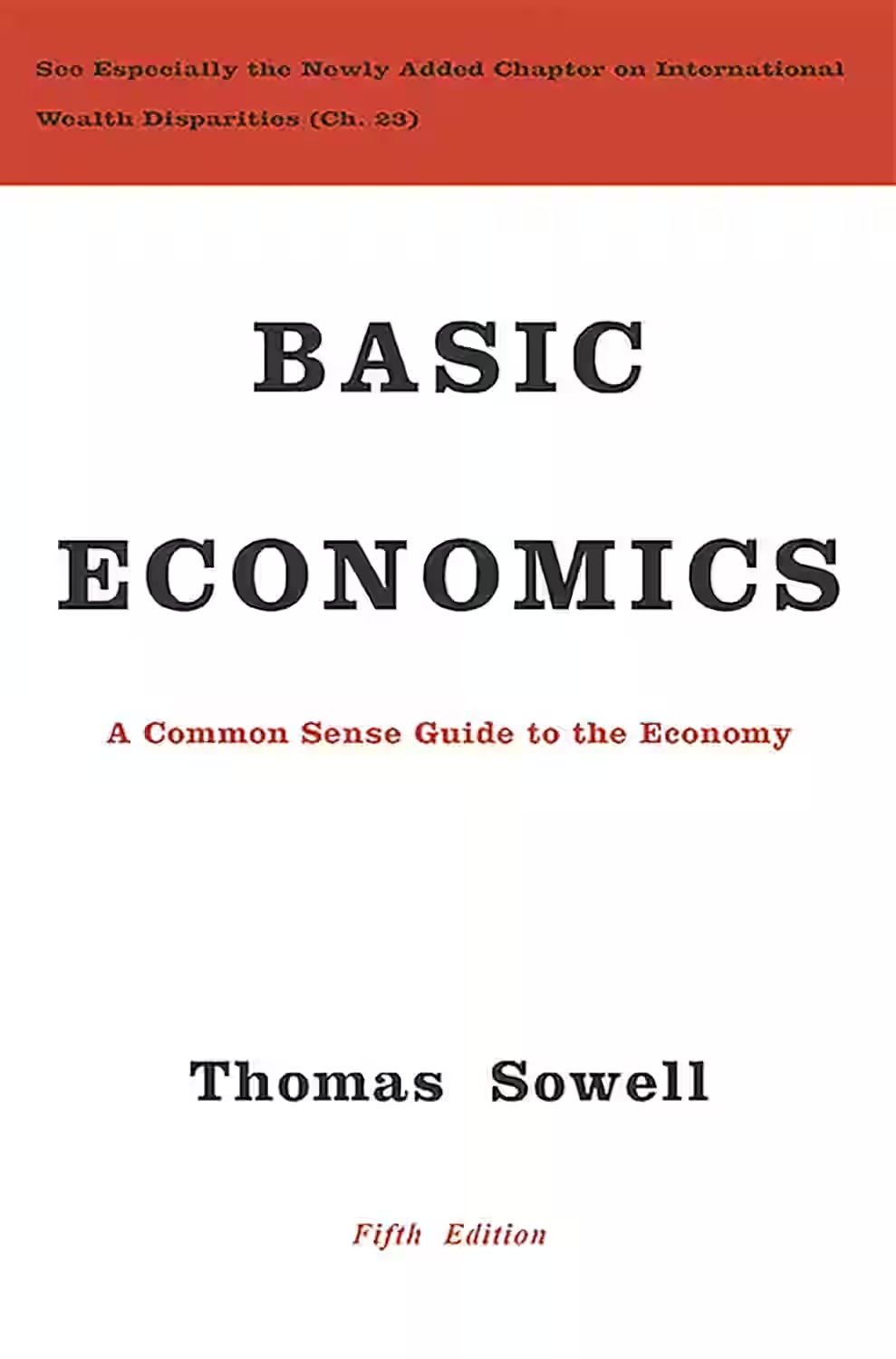
In 'Basic Economics: A Common Sense Guide to the Economy' by Thomas Sowell, readers are taken on a journey through the fundamental principles of economics in a clear and accessible manner. Sowell breaks down complex economic concepts into easily digestible lessons, making it a perfect choice for those looking to grasp the basics of how economies function. By using real-world examples and a conversational tone, the author engages readers in understanding topics like supply and demand, price controls, and international trade. This book serves as an eye-opening resource for individuals wanting to comprehend the intricacies of the economy without getting lost in jargon.
About Thomas Sowell
Thomas Sowell is an American economist, social theorist, and senior fellow at the Hoover Institution at Stanford University. He is renowned for his writings on economics, race, history, and public policy, often challenging prevailing progressive narratives. In Knowledge and Decisions, one of his most influential books, Sowell examines how information and incentives shape societal outcomes. His work is characterized by clear prose, empirical rigor, and a commitment to classical liberal principles. Sowell has authored over 30 books and countless essays, earning a reputation as one of the most important conservative intellectuals of the past half-century.
Other Books by Thomas Sowell
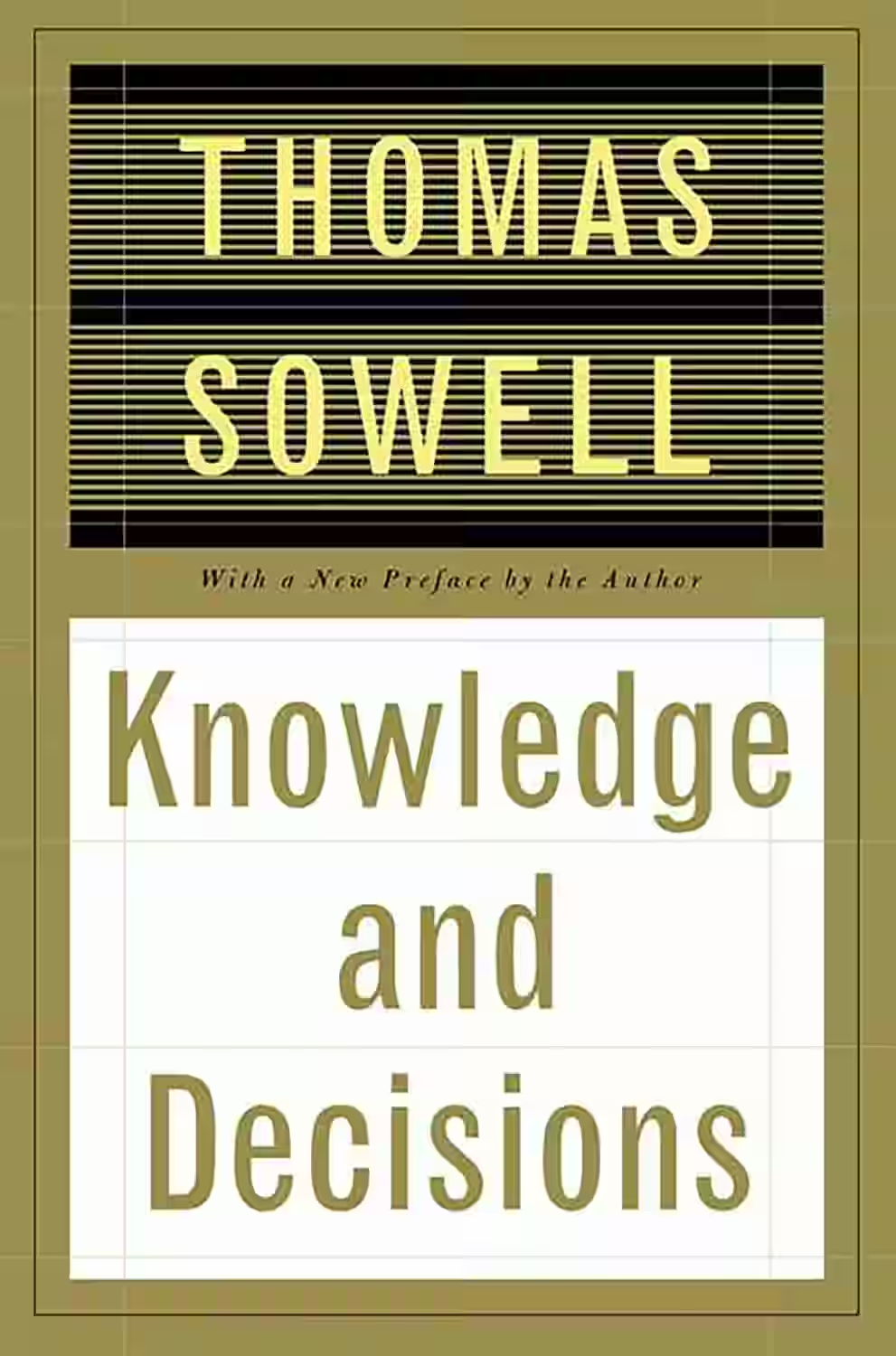
Knowledge and Decisions
Economist and political commentator Thomas Sowell explores how knowledge is distributed and used across different institutions, from markets to governments. He argues that decision-making is most efficient when decentralized and guided by incentives, rather than centralized planning. Sowell highlights how information, incentives, and constraints shape outcomes in society, emphasizing the superiority of systems that allow individuals to act on local knowledge. Rich in economic and philosophical insight, the book critiques technocratic overreach and defends free-market mechanisms. It’s considered one of Sowell’s most intellectually rigorous works, offering a deep framework for understanding how societies function.
Similar Books
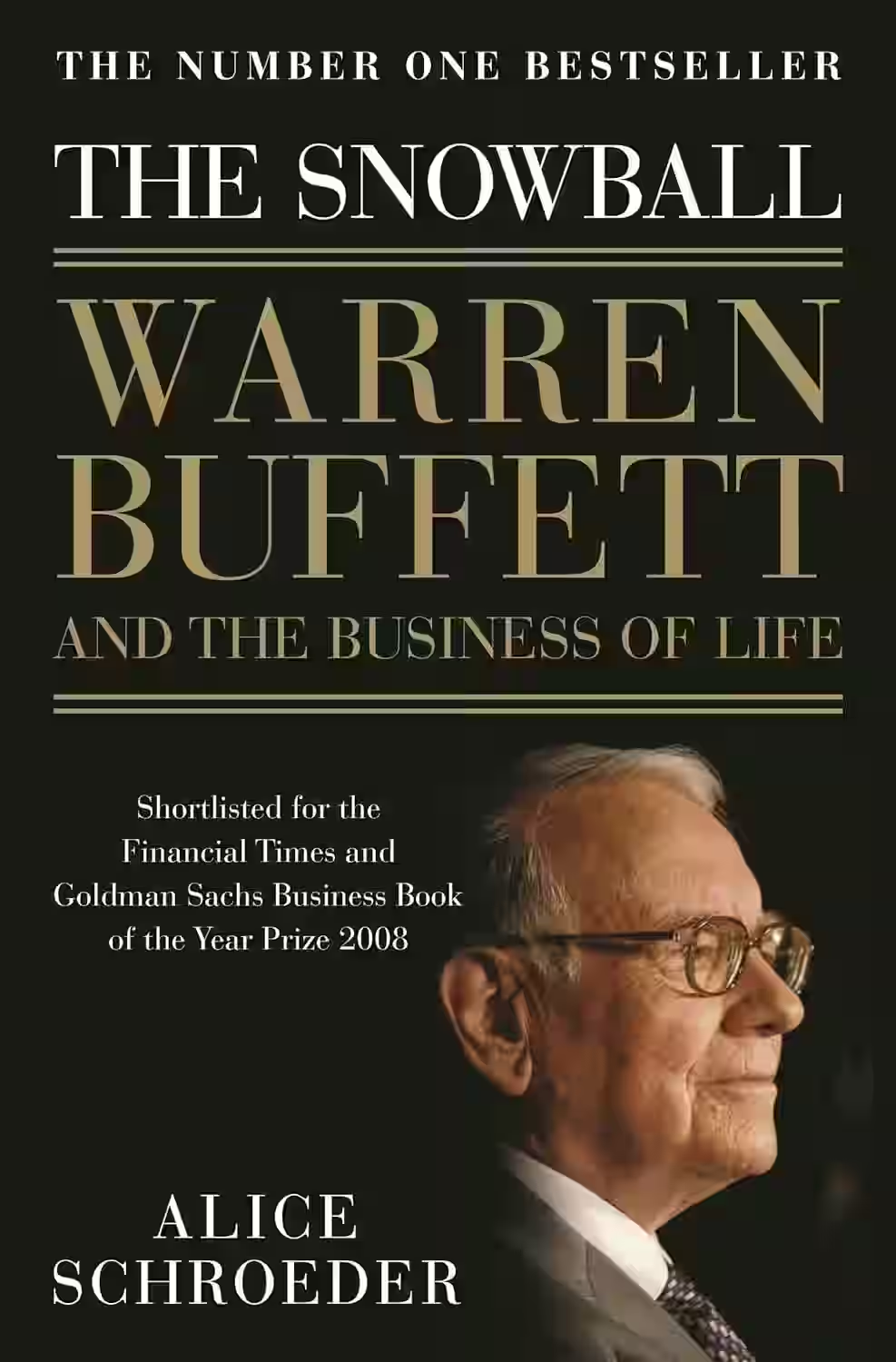
The Snowball: Warren Buffett and the Business of Life
In 'The Snowball: Warren Buffett and the Business of Life,' Alice Schroeder delves into the life of one of the most successful investors of all time, Warren Buffett. The book provides readers with a comprehensive look at Buffett's personal and professional journey, exploring his investment strategies, business decisions, and the principles that have guided his success. By chronicling Buffett's life from his early days to his rise as a billionaire, Schroeder offers valuable insights into the mindset of this legendary figure and the lessons that can be learned from his experiences. 'The Snowball' is a compelling biography that sheds light on the man behind the wealth.
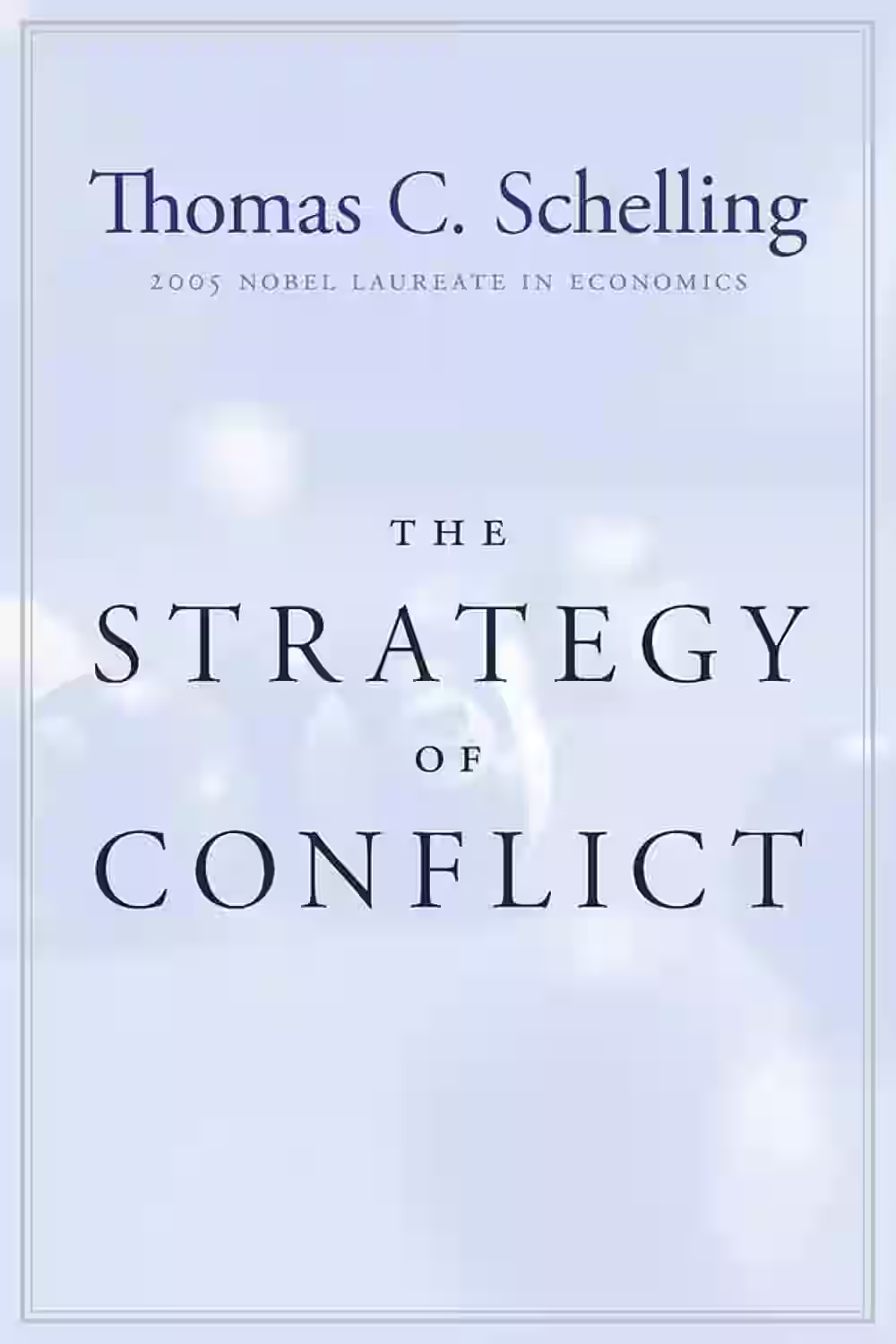
The Strategy of Conflict
A seminal work in game theory, The Strategy of Conflict analyzes how individuals and nations behave in strategic situations—especially in contexts of negotiation, deterrence, and limited war. Schelling explores how communication, credibility, and rationality influence outcomes, showing how conflict can be managed, if not avoided. Originally published during the Cold War, its lessons remain relevant to diplomacy, business, and everyday life. With clarity and foresight, Schelling reveals the paradoxes of strategic thinking, like the value of unpredictability or the power of threats. His insights have shaped fields from economics to military strategy and behavioral science.
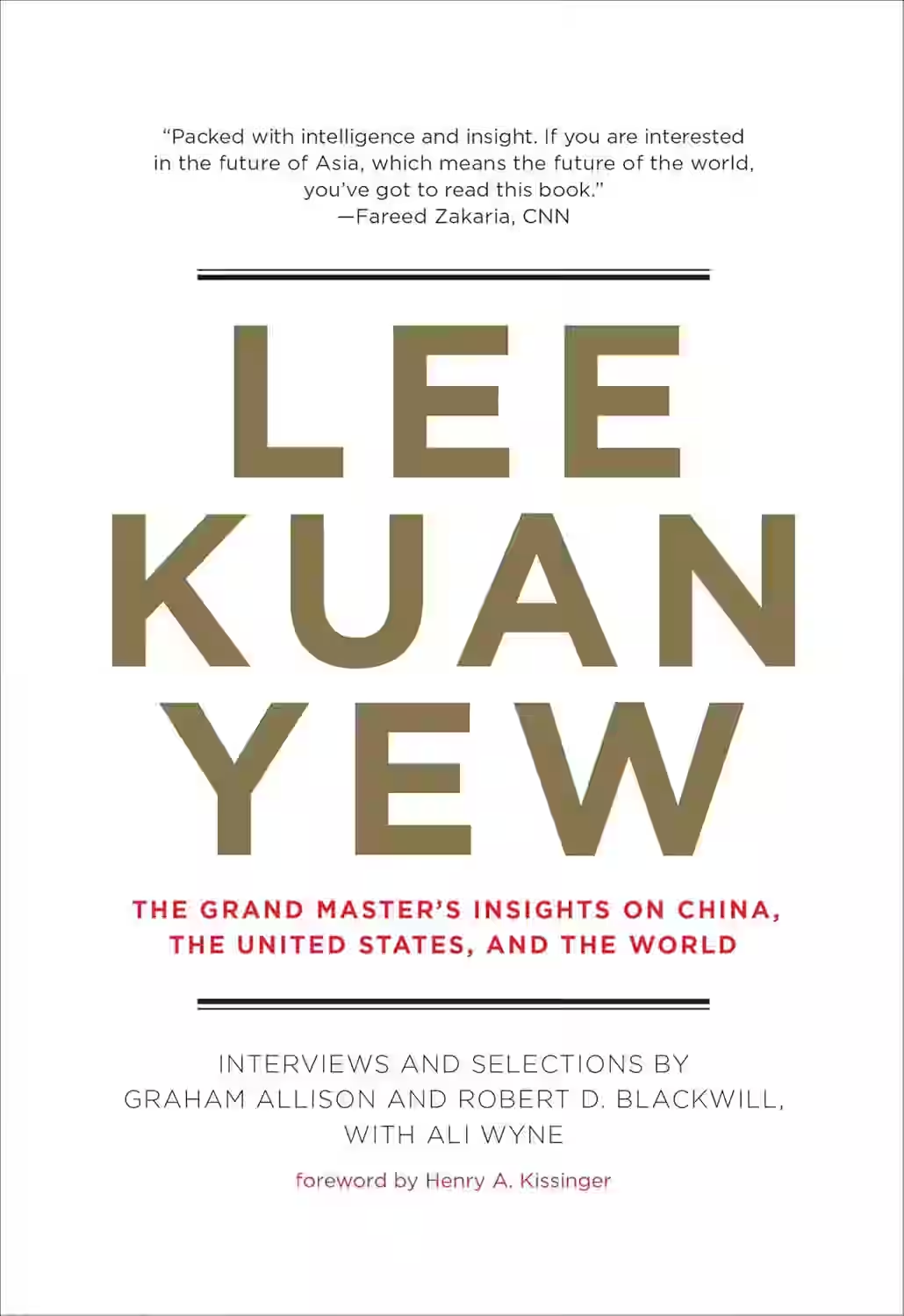
The Grand Master's Insights on China, the United States, and the World
In 'The Grand Master's Insights on China, the United States, and the World,' Graham Allison, a renowned political scientist, offers a compelling analysis of the complex dynamics between China and the United States, exploring their interactions and implications for global politics. Drawing on his expertise, Allison delves into the historical context, strategic calculations, and potential pitfalls that shape the relationship between these two global powers. Through insightful anecdotes and data-driven arguments, he sheds light on the challenges and opportunities that arise from their interactions, providing readers with a deeper understanding of the intricacies of international relations.
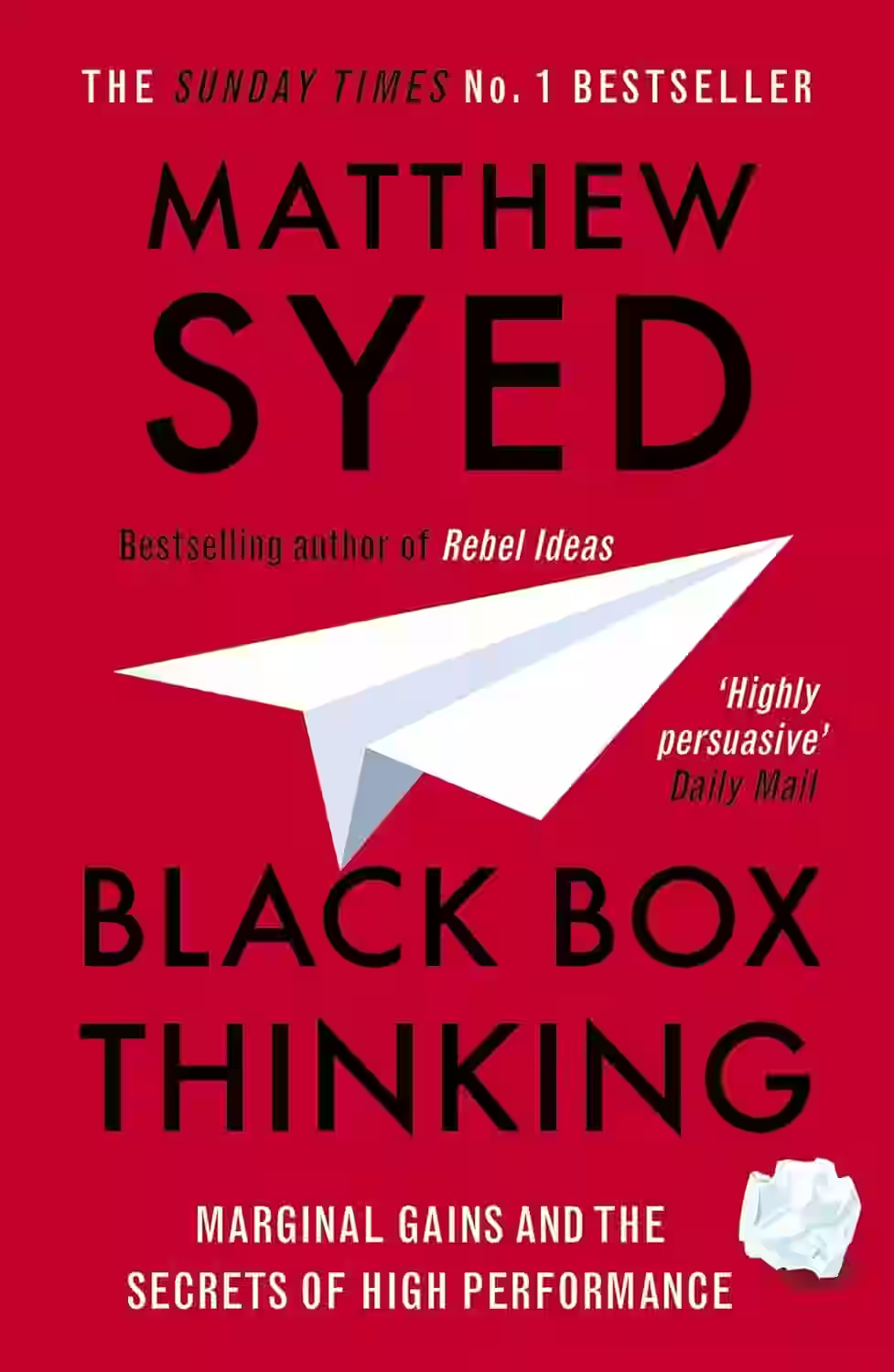
Black Box Thinking: Why Some People Never Learn from Their Mistakes, But Some Do
by Matthew Syed
In 'Black Box Thinking', Matthew Syed delves into the intriguing concept of learning from failure by drawing parallels between high-stakes industries like aviation and healthcare with everyday scenarios. Syed emphasizes the importance of embracing mistakes, fostering a growth mindset, and creating a culture where failures are seen as opportunities for improvement rather than something to be hidden or ignored. With compelling real-life examples and thorough research, he challenges the reader to reevaluate their approach to failure and encourages a shift towards a more open and adaptive mindset. This thought-provoking book provides valuable insights that can be applied across various aspects of life and work.